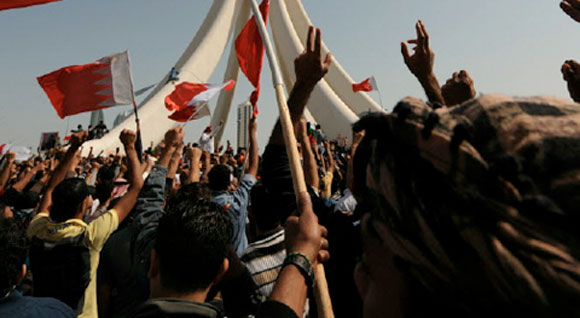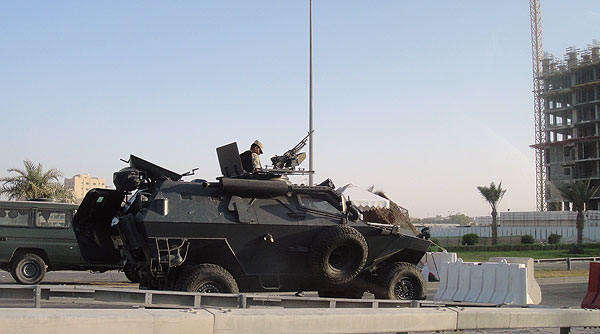Unrest in Bahrain: Events that Lead to February Riots in Bahrain
Bahrain Top Stories
Unrest in Bahrain: Events that Lead to February Riots in Bahrain
On May 31st King Hamad bin Isa Al Khalifa called for a National Council of Reconciliation to bring together all parties to resolve the situation.

Political Chronology of Unrest in Bahrain
“Trouble in Paradise”
Bahrain has long been reputed one of the freest, most open, and most economically and socially liberal states in the Middle East. According to the 2011 Index of Economic Freedom produced by the Heritage Foundation and Wall Street Journal, Bahrain ranks 10th in economic freedom among 127 states rated
Bahrain has long been reputed one of the freest, most open, and most economically and socially liberal states in the Middle East. According to the 2011 Index of Economic Freedom produced by the Heritage Foundation and Wall Street Journal, Bahrain ranks 10th in economic freedom among 127 states rated—immediately after the United States in 9th place—and highest among all the countries of the Middle East.
Further, the report accompanying the rating states that “Bahrain has developed one of the Persian Gulf’s most advanced economies and most progressive political systems since gaining independence from Great Britain in 1971.” Therefore, the demonstrations and rioting that have erupted in this island kingdom since February 2011 came as a surprise to most outside observers.
The events that have put the reputation of Bahrain in question arise out of the huge eruption now known as the Arab Spring which, beginning in early January, rolled across North Africa, toppling the governments of Tunisia and Egypt by early February, and surfacing in many other countries of the MENA (Middle East and North Africa) region—notably Jordan, Syria, and Yemen—and most recently overthrowing the government of Muammar Gadaffi in Libya.
On February 14th, 2011, the Arab Spring reached Bahrain when thousands of protesters filled the main square of the capital, Manama, demanding changes in the government of Bahrain. The demonstrations and protests continued for a month, until the government asked for help to restore order from the GCC (Gulf Cooperation Council), of which Bahrain is a member, resulting in the arrival of 10,000 troops from Saudi Arabia.
On March 14th demonstrators at Pearl Roundabout were forcibly dispersed, and sporadic demonstrations continuing through April and May were systematically—some say ”brutally”—put down. From then until June 1st, a state of emergency was declared and the country put under martial law.
On May 31st King Hamad bin Isa Al Khalifa called for a National Council of Reconciliation to bring together all parties to resolve the situation. This call for reconciliation was praised by many foreign governments, especially by the United States and several EU countries. However, after initially joining the talks, the representatives of the main opposition, Al Wefiq, walked out because only social and economic issues were talked about, and not any change in the distribution of power.